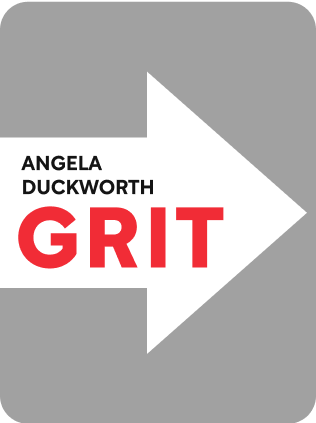

This article is an excerpt from the Shortform book guide to "Grit" by Angela Duckworth. Shortform has the world's best summaries and analyses of books you should be reading.
Like this article? Sign up for a free trial here .
Do you find meaning in the work that you do? How can you develop a sense of purpose in your work?
Many people aim to find meaningful work from the get-go, but according to Angela Duckworth, the author of Grit, finding meaning in your work can take time. In her book, she shares some tips on how to find meaningful work through the three-part progression to purpose.
Here is what Duckworth has to say about finding meaning in your work.
How to Develop Meaning
Are you wondering how to find meaningful work? In her book Grit, Duckworth notes that while some people know their purpose early and shape their career around it, most successful people typically follow a three-part progression to purpose, and that, like interests, a sense of purpose often takes time to develop:
- People start by being attracted to an interest for self-centered reasons.
- They become proficient at this interest through self-discipline and practice.
- They begin to understand how their skills can benefit the world around them, and they start to prioritize other people’s needs.
(Shortform note: These phases correspond to the three stages of grit we’ve explored so far—finding an interest, becoming proficient through deliberate practice, and finally, integrating skill with a purpose. We can thus see that purpose is an extension of passion, and that passion leads to purpose as it matures. In fact, many experts advise that the two are intimately intertwined, and that a person will only be truly passionate about something that gives their lives purpose—for example, when Simon Sinek advises, as we previously discussed, that you adopt a Just Cause in your pursuit of success, he argues that the reason it’s important to do so is that having such a purpose will inspire passion, not only in yourself but in others around you.)
Duckworth argues that because purpose often develops through this predictable process, you can consciously nurture it in your existing profession, thus turning your current job into a calling without changing jobs. The key is in seeing your tasks not just as obligations that have to be done, or as opportunities that will lead to personal success, but instead, as something that will connect you to a greater good—a larger purpose that serves humanity.
She uses the example of a man who took a job as an entry-level engineer working on New York City’s subway system. At first he took the job because he needed rent money and he had no better plan, but he ended up becoming more and more interested in the work and started to look for ways to deepen his knowledge and skills. He eventually came to see his work as a vital part of the city, helping to keep the trains running. Once he saw how he was making a contribution to society, he started to view his work as a calling.
| Do What You Love, or Love What You Do? Many people are familiar with the popular advice, often attributed to Confucius, of “Choose a job that you love and you’ll never have to work a day in your life.” But some experts argue that the emphasis on finding what you love is overrated, and instead, you should figure out how to love what you do by finding purpose in it. In his book Great Work, David Sturt observes that people are able to craft meaningful jobs out of every sort of career path, from janitors to engineers to chefs. The trick is not in looking for what you may get out of a job, but instead, looking for how you might benefit others through your job. He argues that this is because humans are hard-wired not only to look out for themselves, but also to care about other people, and that this can inspire greater motivation than simple interest in a field can. As an example, he discusses hospital cleaning staff who find career satisfaction by seeing themselves not just as cleaners, but also as people who contribute to the patient experience. These workers find little ways to go above and beyond their job requirements that make a difference in people’s lives—for example, they might rearrange photos on a desk of a comatose patient to give him a change of scenery, or offer tissues to family members receiving difficult news. Sturt argues that anyone can learn to find this sort of motivation in their current position if they adjust their mindset to see their work as more than just a set of requirements, and if they try to expand the reach of their job description to benefit others as well as themselves. He notes that with this mindset, people have found satisfaction and success in a wide range of fields, many of which they might not have set out to pursue based on a pre-existing passion. For the most part, Duckworth advises that you pursue your intrinsic interests, but her ideas intersect with Sturt’s in this section when she notes that if you can’t feasibly do that, you can still find happiness by focusing on something you can love in your current pursuit. |

———End of Preview———
Like what you just read? Read the rest of the world's best book summary and analysis of Angela Duckworth's "Grit" at Shortform .
Here's what you'll find in our full Grit summary :
- How your grit can predict your success
- The 4 components that make up grit
- Why focusing on talent means you overlook true potential






